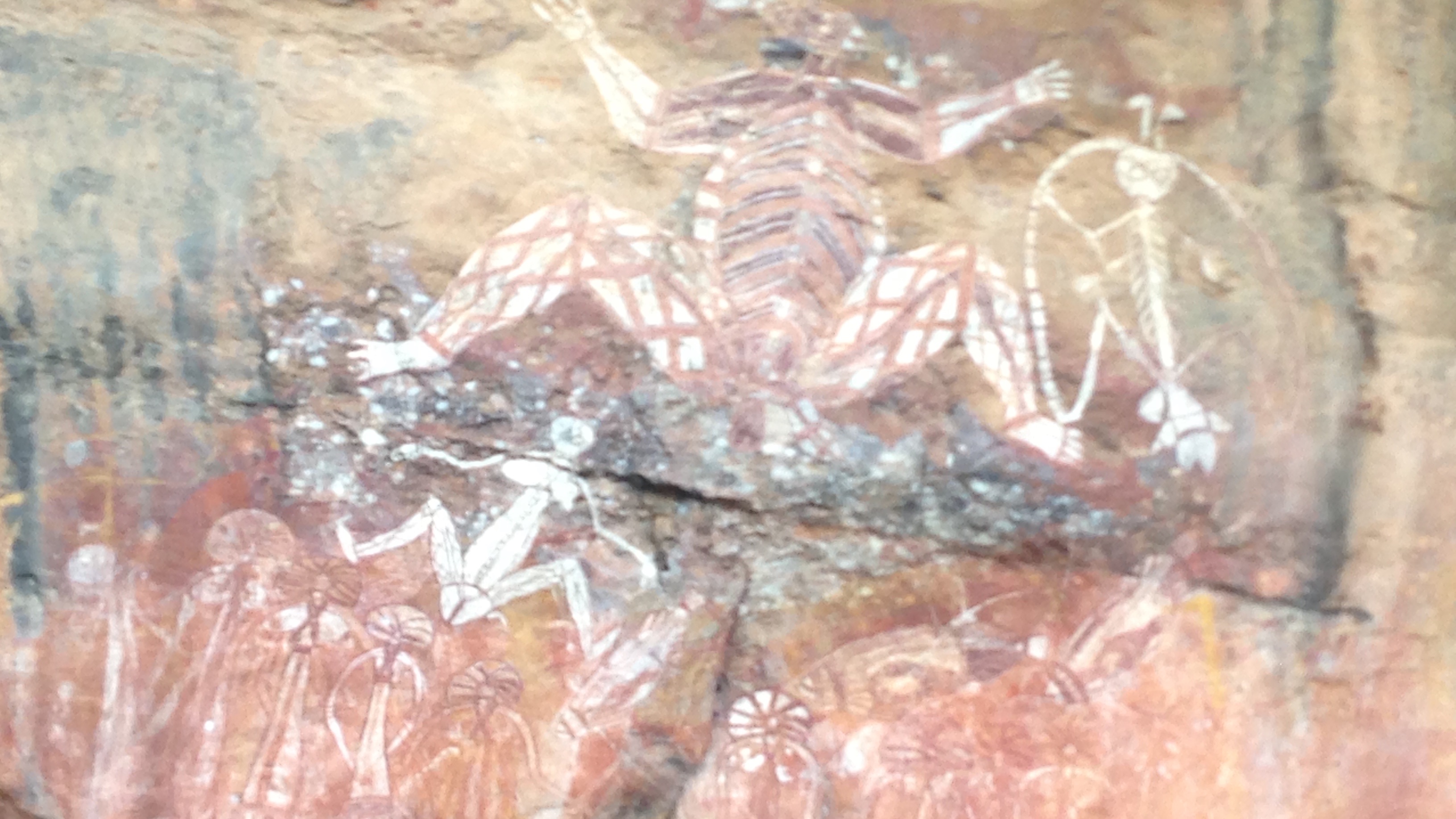
Let's Tell a Learning Story
Apr 24, 2023A few years ago, I was exploring petroglyphs and ancient dwelling sites in Kakadu National Park in Northern Territories, Australia. In my usual fashion, I didn’t follow a prescribed path, and I didn’t take the time to read interpretive signs. I had a lot to see and not much time.
As I jogged around one interesting rock formation, I was confronted by a huge painting on the cliff face. Panting and sweating (it was 40c and humid), I glanced over the drawing and instantly understood the story or a least the broad strokes of it: The giant creature with the claws and teeth gave birth to a more comforting creature, who was the mother of all humans, or at least the tribe who owned this origins story.
In other words, people from more than 20,000 years ago, who spoke a language I don’t speak (and that probably no longer exists), told me a story that I understood in an instant.
But I remember almost nothing of the presentation I observed yesterday, certainly not the individual bullets on the PowerPoints.
It turns out our brains are hard-wired for story…
…And not for PowerPoint slides and bullets.
When we sit through a webinar, the Broca and Wernicke parts of the brain are engaged, and that’s about it. These are small regions of our brains that translate words into meaning. So, as you read those two sentences, that’s all that is going on in your brain.
But as you read that last sentence, something changed. I created a simple story about your brain reading words. When you read that third sentence, all sorts of things happened. You began visualizing your brain firing, and you began to create a little narrative in your head. It’s still going on now. In fact, as I write this hours, days, weeks, and months before you read it, I predict that you are having an imaginary conversation with me.
Mind control!
What makes story so powerful when it comes to learning?
At its simplest, a story is about cause and effect. And this is how we think. When there is an effect, we look for a cause. For every action we take or decision we make, we create little stories in our heads about why it happened. We have imaginary conversations all day (like the one you’re having with me now).
When it comes to interacting with our learners, we can tell a simple, single-sentence story like the one you read above and cause learners to engage with the material and have internal conversations about what they are learning.
But what if you wanted to take this a step further?
When we hear someone telling a story or sharing a metaphor, our brain quickly searches our memories for similar, previous experiences to relate what we're hearing to something we've already experienced.
You probably haven’t been to Kakadu National Park. You may not have been to Australia. And if you have been, you probably haven’t even been to the Northern Territories. And even then, did you leave Darwin? Or were you way down south at Uluru Rock? If all this is true, you literally can’t relate to my story about discovering that ancient origin story.
But when you were reading, your brain scrambled, looking for similar experiences you’ve had. Have you been to a national park? Have you seen petroglyphs? If you’re in the US, that “40c” reference threw you, but you understand hot and humid.
When our brains search for similar experiences, we activate a region called the Insula, which is an emotion part of the brain. This allows us to associate the proper emotions with what we are being told: joy, fear, disgust, desire, and so on.
And this is where it gets weirder. When researchers studied the brains of a storyteller and her listeners, they noticed that the brains synched up. When the woman was telling a story, there was activity in her Insula as she felt the emotions of her story. At the same time, her listeners had similar activity in their Insula regions as they listened. Also, when scans showed activity in her frontal cortex, the listeners had similar activity there as well.
In other words, by telling a story, she literally controlled their minds.
How about one more? What if you want a learner to “own” a concept, idea, or process?
According to researchers, a story is the only way to activate the brain in a manner that causes listeners to believe it was their idea or experience.
You’ve had this experience; you were at work telling someone a story about how you came to a conclusion. Then two weeks later, in a meeting with the boss, they take credit for your idea. You thought they were being a jerk, but you simply weren’t aware of the mind control you enacted on them.
So, what about you, your learning programs, and your learners? Instead of simply doling out information, use stories, examples, and metaphors to engage more of their brains. Deliberately use stories to engage them and even control their minds. Determine what you want them to feel and remember, then couch that information in a story.
So, what’s your story?
Don't miss a beat!
New moves, motivation, and classes delivered to your inbox.
We hate SPAM. We will never sell your information, for any reason.
